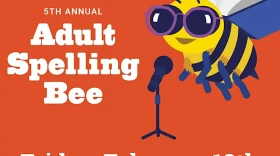The National Science Foundation announced this summer that the Milwaukee Public Museum will receive a $4.3 million grant for the Terrestrial Parasite Tracker. This massive digital database will organize more than 1.3 million arthropod specimens (ticks, mosquitoes, fleas) in a geographically comprehensive way.
The museum, along with 25 other institutions across the United States, will create this database to help track the spread of diseases like Lyme and West Nile. The database should help people working in human health and safety, agriculture, and wildlife conservation.

If you find a tick on your dog, you want to know if you should be concerned, says Dr. Jennifer Zaspel. She's Milwaukee Public Museum’s research curator and head of zoology, and the leader of this national project.
"It would be very useful to be able to pull up your phone and take a picture of that organism and have some information about what it is, whether or not it’s harmful, and if it is, what you should do about it," she explains.
READ: Tips To Protect Yourself From Ticks & Mosquitoes
Zaspel will help collect images of specimens on pins, slides and vials, which she hopes will later be useful to both scientists and the general public through digital tools like smartphone apps. She'll also lead workshops and discussions to ensure the data will be accessible through various identification tools, brochures and field guides.

"It's a massive undertaking figuring out where the data will go, how it will be delivered, where we will store the images and how we will organize them so we can find them later for downstream research," says Zaspel. This large-scale effort will help those working in land management and invasive species risk assessment, she says.
Consolidating this information will allow for a geographic approach to species identification, which Zaspel hopes will be research ready after three years.







